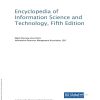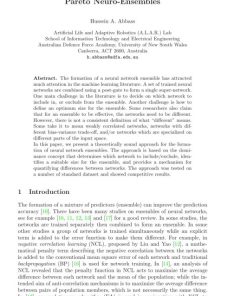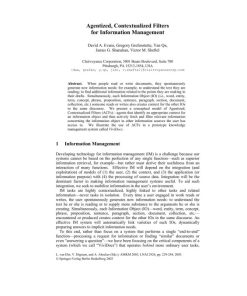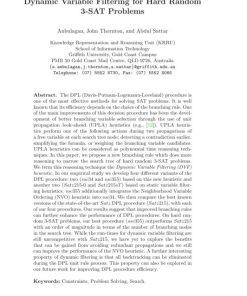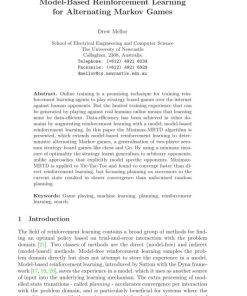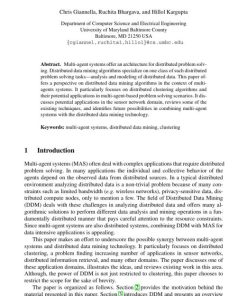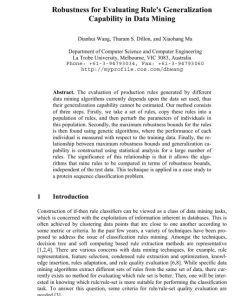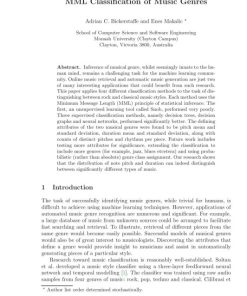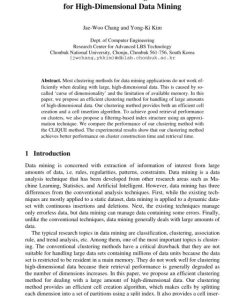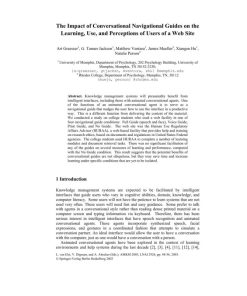LNAI 2926 Intentional Analysis for Distributed Knowledge Management 1st Edition by Anna Perini, Paolo Bresciani, Eric Yu, Alessandra Molani ISBN 9783540206460 354020646X
$50.00 Original price was: $50.00.$25.00Current price is: $25.00.
Authors:Anna Perini, Paolo Bresciani, Eric Yu; Alessandra Molani , Tags:Agent-Mediated Knowledge Management , Author sort:Anna Perini, Paolo Bresciani, Eric Yu & Molani, Alessandra , Languages:Languages:eng , Published:Published:Feb 2004
LNAI 2926 Intentional Analysis for Distributed Knowledge Management 1st Edition by Anna Perini, Paolo Bresciani, Eric Yu, Alessandra Molani- Ebook PDF Instant Download/Delivery. 9783540206460 ,354020646X
Full download LNAI 2926 Intentional Analysis for Distributed Knowledge Management 1st Edition after payment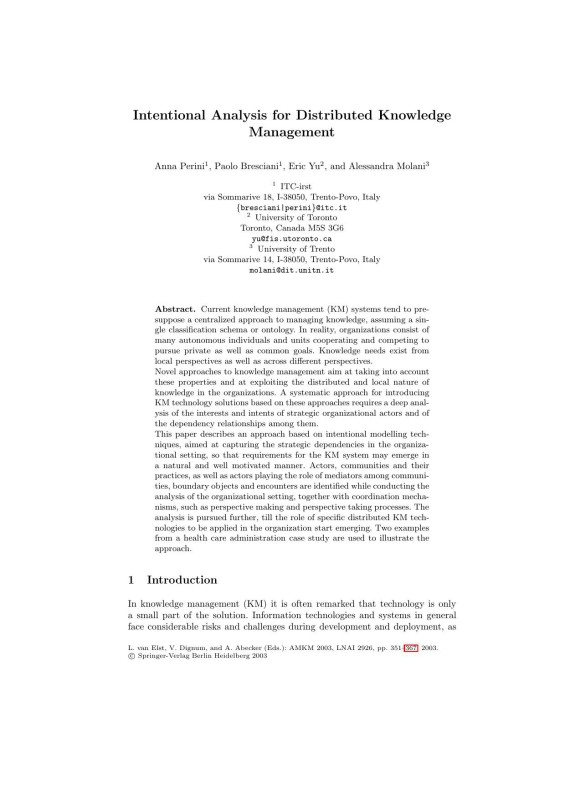
Product details:
ISBN 10: 354020646X
ISBN 13: 9783540206460
Author: Anna Perini, Paolo Bresciani, Eric Yu, Alessandra Molani
Current knowledge management (KM) systems tend to presuppose a centralized approach to managing knowledge, assuming a single classification schema or ontology. In reality, organizations consist of many autonomous individuals and units cooperating and competing to pursue private as well as common goals. Knowledge needs exist from local perspectives as well as across different perspectives.
Novel approaches to knowledge management aim at taking into account these properties and at exploiting the distributed and local nature of knowledge in the organizations. A systematic approach for introducing KM technology solutions based on these approaches requires a deep analysis of the interests and intents of strategic organizational actors and of the dependency relationships among them.
This paper describes an approach based on intentional modelling techniques, aimed at capturing the strategic dependencies in the organizational setting, so that requirements for the KM system may emerge in a natural and well motivated manner. Actors, communities and their practices, as well as actors playing the role of mediators among communities, boundary objects and encounters are identified while conducting the analysis of the organizational setting, together with coordination mechanisms, such as perspective making and perspective taking processes. The analysis is pursued further, till the role of specific distributed KM technologies to be applied in the organization start emerging. Two examples from a health care administration case study are used to illustrate the approach.
LNAI 2926 Intentional Analysis for Distributed Knowledge Management 1st Edition Table of contents:
Chapter 1: Introduction to Knowledge Management in Distributed Systems
- 1.1. What is Knowledge Management (KM)?
- 1.2. Challenges of Knowledge Management in Distributed Environments
- 1.3. The Role of Intentionality in Managing Knowledge
- 1.4. Overview of the Book’s Structure and Approach
- 1.5. Target Audience and Practical Applications
Chapter 2: Foundations of Intentional Analysis
- 2.1. What is Intentional Analysis?
- 2.2. Intentions, Goals, and Beliefs: Key Concepts
- 2.3. Intentional Analysis and Agent-Based Models
- 2.4. Formalizing Intentionality in Knowledge Management
- 2.5. The Relationship between Knowledge Representation and Intentionality
Chapter 3: Distributed Knowledge Systems and Architectures
- 3.1. Characteristics of Distributed Knowledge Management Systems
- 3.2. Knowledge Representation in Distributed Systems
- 3.3. Distributed Knowledge Acquisition and Sharing Techniques
- 3.4. Architectures for Supporting Distributed Knowledge
- 3.5. Challenges in Managing Knowledge Across Distributed Networks
Chapter 4: Intentional Analysis for Goal-Oriented Knowledge Management
- 4.1. The Role of Goals in Knowledge Management
- 4.2. Goal-Oriented Knowledge Management and Decision Making
- 4.3. Using Intentional Analysis for Goal Identification and Structuring
- 4.4. Aligning Organizational Goals with Knowledge Sharing Practices
- 4.5. Case Study: Implementing Goal-Oriented KM Systems Using Intentional Analysis
Chapter 5: Modeling Organizational Intentions and Knowledge Flow
- 5.1. Mapping Organizational Intentions to Knowledge Flows
- 5.2. The Role of Agents in Intentional Knowledge Management
- 5.3. Modeling Intentions in Distributed Knowledge Systems
- 5.4. Formal Methods for Analyzing Knowledge Flow Using Intentional Analysis
- 5.5. Case Study: Modeling Knowledge Flow in Collaborative Networks
Chapter 6: Multi-Agent Systems and Intentional Analysis
- 6.1. Introduction to Multi-Agent Systems (MAS) in KM
- 6.2. Applying Intentional Analysis to Agent-Based Models
- 6.3. Coordination and Cooperation Among Knowledge Agents
- 6.4. Using MAS to Automate Knowledge Sharing and Retrieval
- 6.5. Case Study: Applying MAS to Knowledge Sharing in a Distributed Team
Chapter 7: Intentional Analysis in Knowledge Sharing and Collaboration
- 7.1. The Importance of Knowledge Sharing in Distributed Systems
- 7.2. Intentional Analysis for Identifying Knowledge Gaps and Opportunities
- 7.3. Collaboration Strategies: Leveraging Intentions for Effective Cooperation
- 7.4. Mechanisms for Facilitating Knowledge Sharing Based on Intentional Analysis
- 7.5. Case Study: Improving Knowledge Sharing in a Cross-Organizational Network
Chapter 8: Evaluating Intentional Models for Distributed Knowledge Management
- 8.1. Metrics for Evaluating Knowledge Management Systems
- 8.2. Evaluating the Effectiveness of Intentional Models in Distributed Environments
- 8.3. Case Studies of Intentional Analysis Applications in KM Systems
- 8.4. Quantitative and Qualitative Evaluation of Knowledge Sharing and Collaboration
- 8.5. Challenges in Measuring the Success of Intentional Analysis in KM
Chapter 9: Knowledge Representation and Reasoning in Distributed Knowledge Systems
- 9.1. The Role of Knowledge Representation in Distributed Systems
- 9.2. Formal Languages for Knowledge Representation
- 9.3. Reasoning Techniques for Intentional Analysis
- 9.4. Bridging Intentional Analysis with Ontologies and Semantic Web
- 9.5. Case Study: Using Ontologies to Enhance Intentional Knowledge Management
Chapter 10: Ethical and Social Implications of Intentional Knowledge Management
- 10.1. Ethical Considerations in Distributed Knowledge Management Systems
- 10.2. The Role of Trust and Privacy in Intentional Knowledge Sharing
- 10.3. Addressing Bias and Fairness in Knowledge Representation
- 10.4. Social Implications of Knowledge Sharing in Distributed Communities
- 10.5. Ethical Challenges and Future Directions for Intentional Analysis in KM
Chapter 11: Future Directions in Intentional Knowledge Management
- 11.1. Emerging Trends in Distributed Knowledge Systems
- 11.2. The Role of Artificial Intelligence in Intentional Knowledge Management
- 11.3. Integration of Intentional Analysis with Big Data and Cloud Computing
- 11.4. Towards Autonomous Knowledge Management Systems
- 11.5. Final Thoughts: The Future of Intentional Analysis in Knowledge Management
People also search for LNAI 2926 Intentional Analysis for Distributed Knowledge Management 1st Edition:
knowledge and common knowledge in a distributed environment
intentional knowledge
intentional distortion meaning
discovering knowledge in data an introduction to data mining
You may also like…
eBook PDF
LNAI 2903 Pareto Neuro Ensembles 1st Edition by Hussein Abbass ISBN 9783540206460 354020646X


